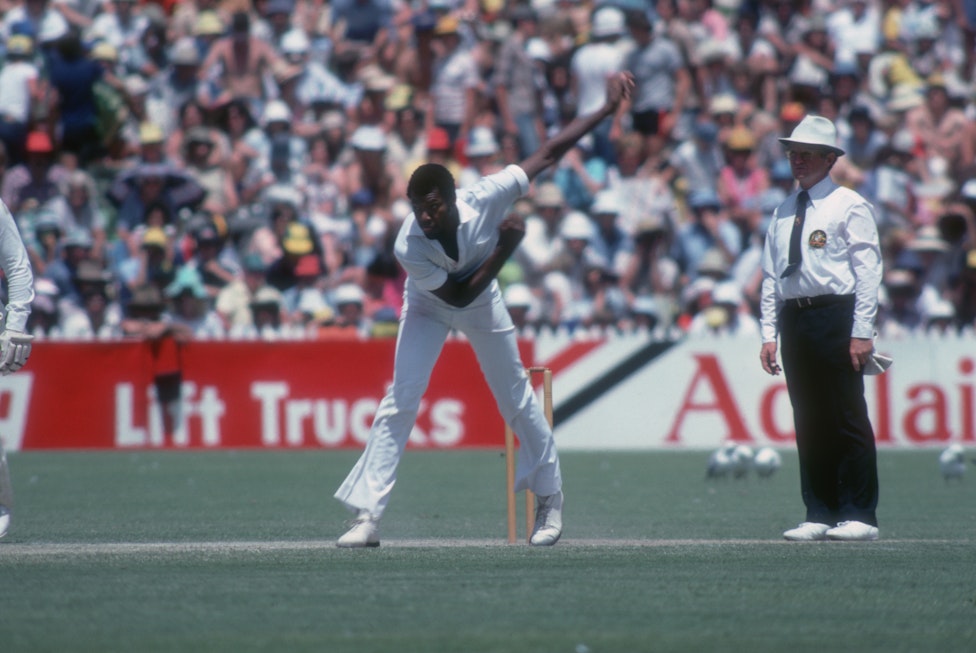 ON THIS DAY
ON THIS DAYCricket has never been a gentleman's game. Though the game's architects attempted to keep it gracious by enforcing stainless uniforms for the players and introducing Tea and an Engish lunch, Cricket was eventually a bunch of men trying to establish dominance over another group of men - the oldest battle known to mankind.
Over the decades, Cricket has seen numerous unsavoury incidents on the field. However, the first blatant rebellion against the gatekeepers of the rulebook took place during the second Test match between New Zealand and West Indies that started on February 22, 1980, at Lancaster Park, Christchurch.
The bitterness was sealed during the controversial first Test match at Dunedin when the seemingly invincible West Indies lost to New Zealand by an excruciating margin of one run following umpire Fred Goodal's questionable calls.
Despite putting up a meager target of 104 runs, Joel Garner's venomous spell had reduced the hosts to 54/7, with the match becoming West Indies' to lose. However, New Zealand would defeat Clive Lloyd's men by a wicket after their tailenders took the final runs off leg-byes. The Men in Maroon were furious at Goodal's decisions, with Michael Holding's angry kick at the stumps creating headlines worldwide.
After prolonged threats of leaving the three-match series midway, the hosts were persuaded to continue. However, the administrators soon realised it was an unwise call.
Following two days of disturbing calm that saw the visitors find multiple faults in Goodal's decision, the West Indies team had decided not to return following Tea and abandon the Test match altogether. However, New Zealand skipper Geoff Howarth and WCB chairman Jeff Stollmeyer ensured the match continued.
The iconic incident was initiated on the fourth day of the second Test match when umpire Goodal made another wrong call as New Zealand captain Richard Hadlee had nicked Colin Croft's bouncer to the wicket-keeper. Croft was seemingly unhappy and responded to Goodal's call with a series of expletives. Years later, Hadlee had admitted that he had edged Croft's delivery.
Goodal didn't take Croft's comments lightly and complained to Lloyd, which the angry skipper ignored. The storm was brewing, and New Zealand fans' incessant jeering at Croft didn't help the cause either. Croft's next over to Hadlee was crammed with bouncers, and when umpire Goodal called a no-ball for Croft balling wide off the bowling crease, all hell broke loose.
While returning to his run-up mark, a furious Croft was seen throwing the bails in the air at the bowling end before setting the most infamous example on a cricket field. Amidst the crowd booing the West Indian bowler, the West Indies bowler shoulder barged umpire Goodal while bowling his next delivery.
Umpire Goodall would be seen going up to West Indies skipper Lloyd and saying, "I have taken some treatment from players in my time, but it has always been verbal. You sort this out now". However, Llyod had decided to keep Croft on the field in a show of disobedience against Goodal.
Though New Zealand skipper Howarth had found the incident disgraceful and wanted Croft to be banned for life following his shoulder barge, the Caribbean bowler has always maintained that he didn't do it deliberately.
"I'm six foot six and 230 pounds. He wouldn't have gotten up if I'd meant to hit him. It's crap that I barged him deliberately," Croft had said in his defence.
As iconic as this incident was, Cricket has never been short of scandalous umpiring sightings. Though the introduction of DRS and other advanced technologies have made the sport less fallible today, it can never wholly wipe away human error. As Llyod would later say post-retirement, "When two men stand out there for five days, they are bound to make mistakes."